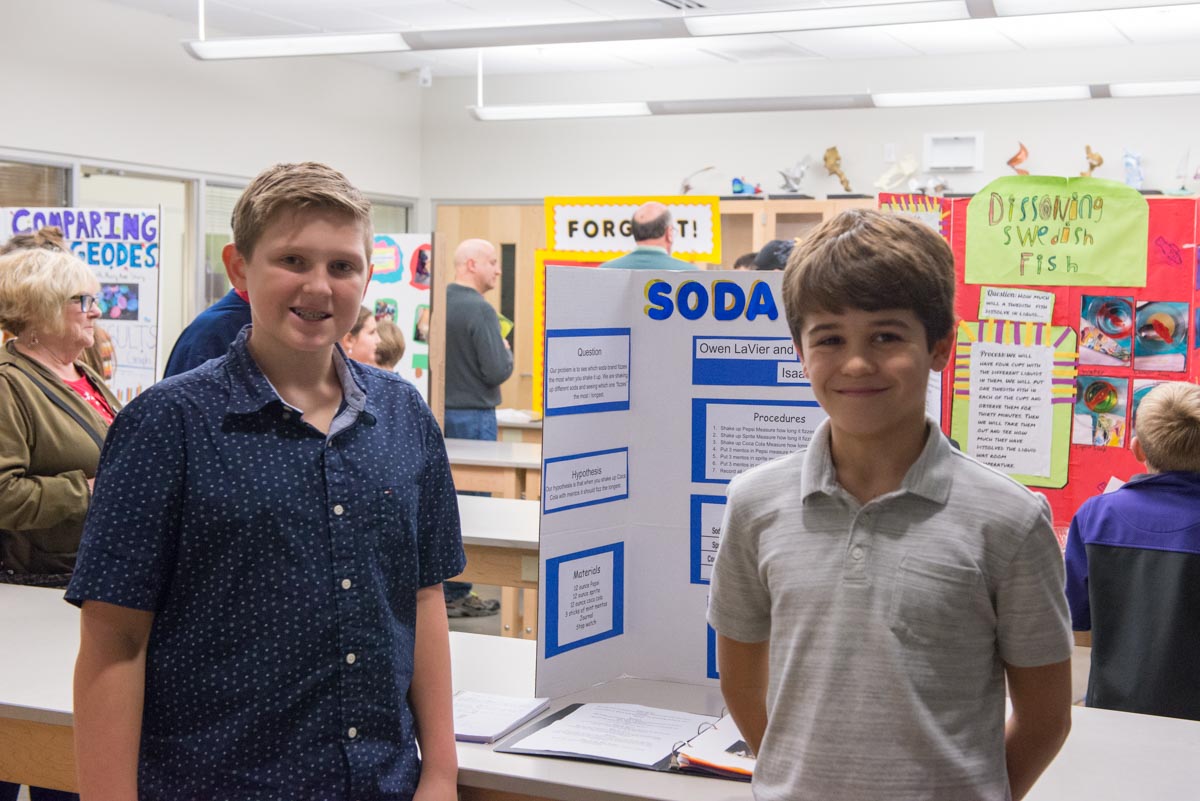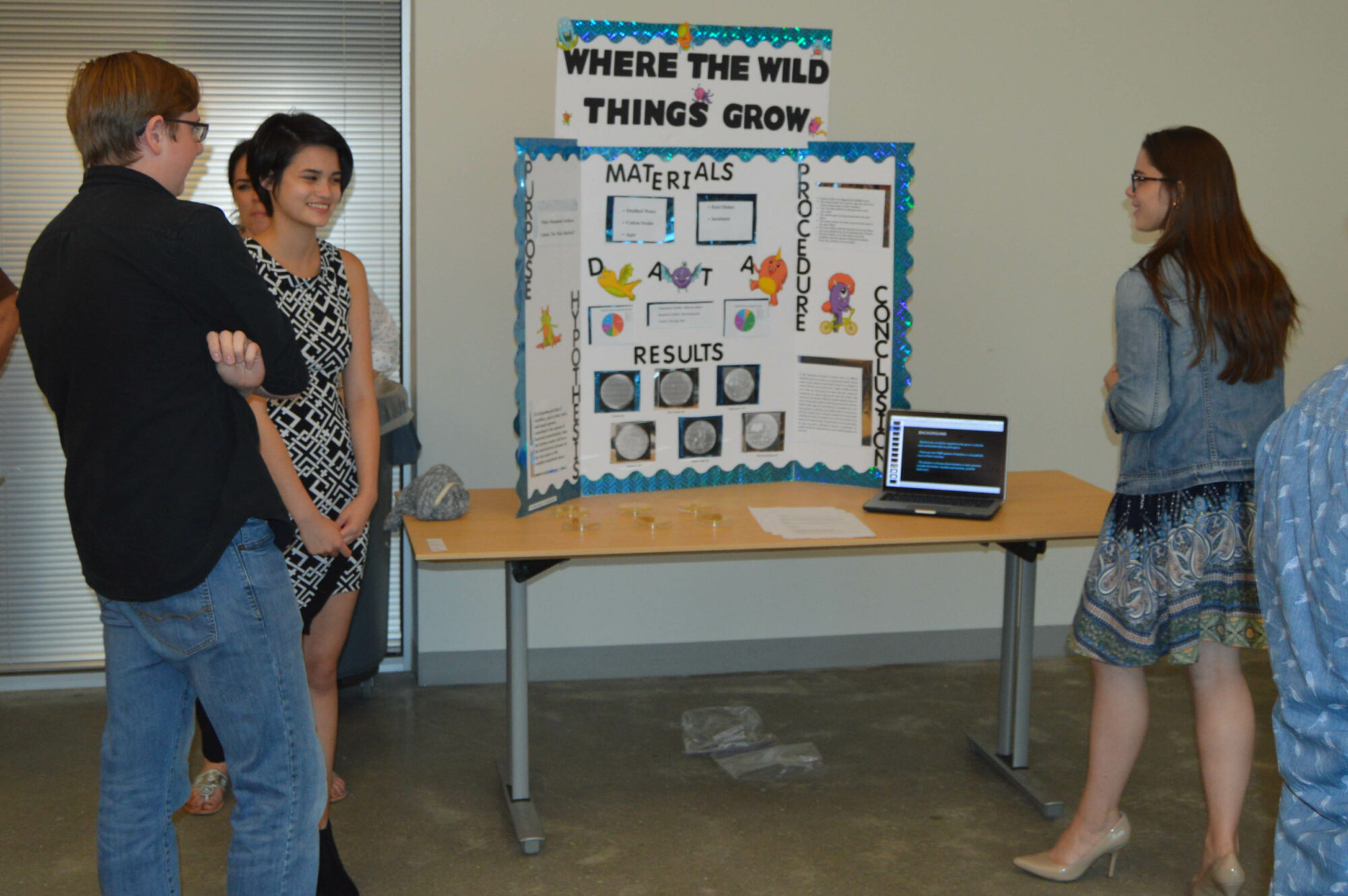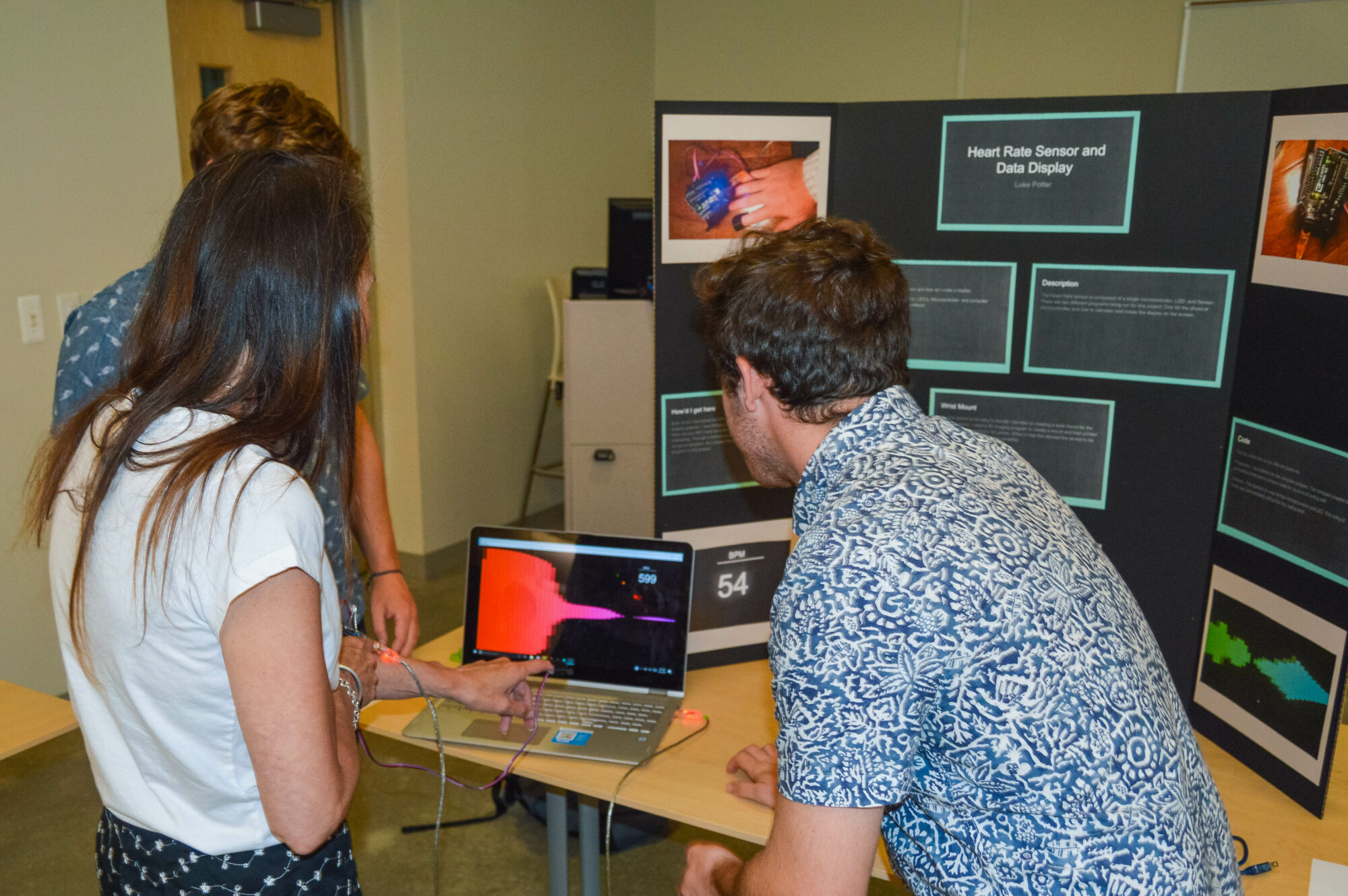OBX Science Fair
Elementary, Middle and High SchoolThe OBX Science Fair brings students from different schools, regions and grades together to share their science experiments in a friendly competition format. The fair takes place in the evening, after school and includes prizes from local businesses. Students that win the OBX fair will have the opportunity to attend the ECU regional fair.
2020 – 2021
Unfortunately due to COVID -19 and the inability to host students on CSI’s campus we are not able to host a Science Fair this year. We plan to host one again next year in 2021-2022. We do have other events that we are hosting virtual or in a hybrid situation. Click here for more information about the NC Renewable Energy Challenge.

2019 – 2020
The 2020 OBX Science Fair was hosted at Coastal Studies Institute on January 14, 2020 in partnership with Jennette’s Pier. The science fair was open to Dare, Currituck, Hyde, Tyrell, Pasquotank and Perquimans Counties. There were elementary, middle and high school divisions. The competition included team and individual projects in engineering, math, biology, physics and environmental science topics. Prizes were available for the winners of the divisions, and they earned the opportunity for those students to move on to the regional science fair that is hosted at ECU.

2018 – 2019
The 2018 – 2019 fair took place on December 13, 2018, and was hosted by Dare County Youth Council and the Coastal Studies Institute (CSI). Students from elementary, middle, high schools and homeschools across Dare County were encouraged to compete for a chance to win cash prizes, a tablet, and qualification for the upcoming Regional Science Fair competition hosted at ECU. Prizes were provided through donations from Dare County Youth Council, the NC Farm Bureau, and CSI. Science Fair projects were judged on the proper use of the scientific method, background research, presentation and ability of participants to answer questions on their research.

Science Fair Rules & Participation
Divisions
Elementary ( Grades 3-5)
Junior (Grades 6-8)
Senior (Grades 9-12)
Categories
Biological Science
Chemistry
Earth/Environmental Science
Physics and Mathematics
Technology
Engineering
Steps to Participate
- Form a Question. To begin, you can visit “Planning and Conducting the Investigation.” If you need assistance in selecting a topic for your question visit “Topic Selection Wizard”, an online service to help generate science project topics. “Selecting a Science Project” is another helpful link with what to consider during your selection.
- Read about your Topic. Gain background information about your topic. This will aid you during the judging portion of the Science Fair.
- Begin your Science Journal. Your journal includes all research done on your topic. This will be part of your presentation of research. It will also help you answer questions judges may ask.
- Develop. Decide how you plan to solve your problem using the knowledge you have acquired.
- Get your plan approved by your adult sponsor and your parents/guardians.
- Complete the Google Form located on at the bottom of this page.
- Start/Finish your Experiment The Science Fair is held at the Coastal Studies Institute at 850 Highway 345, Wanchese, NC 27981. Participants are encouraged to arrive early to set up their projects.
What to bring to OBX Science Fair
There are several items you should prepare for your science fair entry.
A project display board. This should include your title, name, question, results (summary), how you solved your question, the materials you used, what you learned, and any helpful graphics such as pictures or charts. Bring your experiment to the fair for presentation. When possible, bring your experiment to include with the display.
A journal that contains your work. It can be drawings or background information on your project.
A research paper. At a minimum, you should prepare an abstract (a 250-word maximum summary of your experiment). However, a full paper would include: the title, abstract, statement of the problem, experimental methods, results with any graphs and tables, a conclusion, and bibliography with at least five major references.


 Based at the Coastal Studies Institute (CSI), the North Carolina Renewable Ocean Energy Program (NCROEP) advances inter-disciplinary marine energy solutions across UNC System partner colleges of engineering at NC State University, UNC Charlotte, and NC A&T University. Click on the links below for more information.
Based at the Coastal Studies Institute (CSI), the North Carolina Renewable Ocean Energy Program (NCROEP) advances inter-disciplinary marine energy solutions across UNC System partner colleges of engineering at NC State University, UNC Charlotte, and NC A&T University. Click on the links below for more information. ECU's Integrated Coastal Programs (ECU ICP) is a leader in coastal and marine research, education, and engagement. ECU ICP includes the Coastal Studies Institute, ECU's Department of Coastal Studies, and ECU Diving and Water Safety.
ECU's Integrated Coastal Programs (ECU ICP) is a leader in coastal and marine research, education, and engagement. ECU ICP includes the Coastal Studies Institute, ECU's Department of Coastal Studies, and ECU Diving and Water Safety. The ECU Outer Banks campus is home to the Coastal Studies Institute.
The ECU Outer Banks campus is home to the Coastal Studies Institute.

